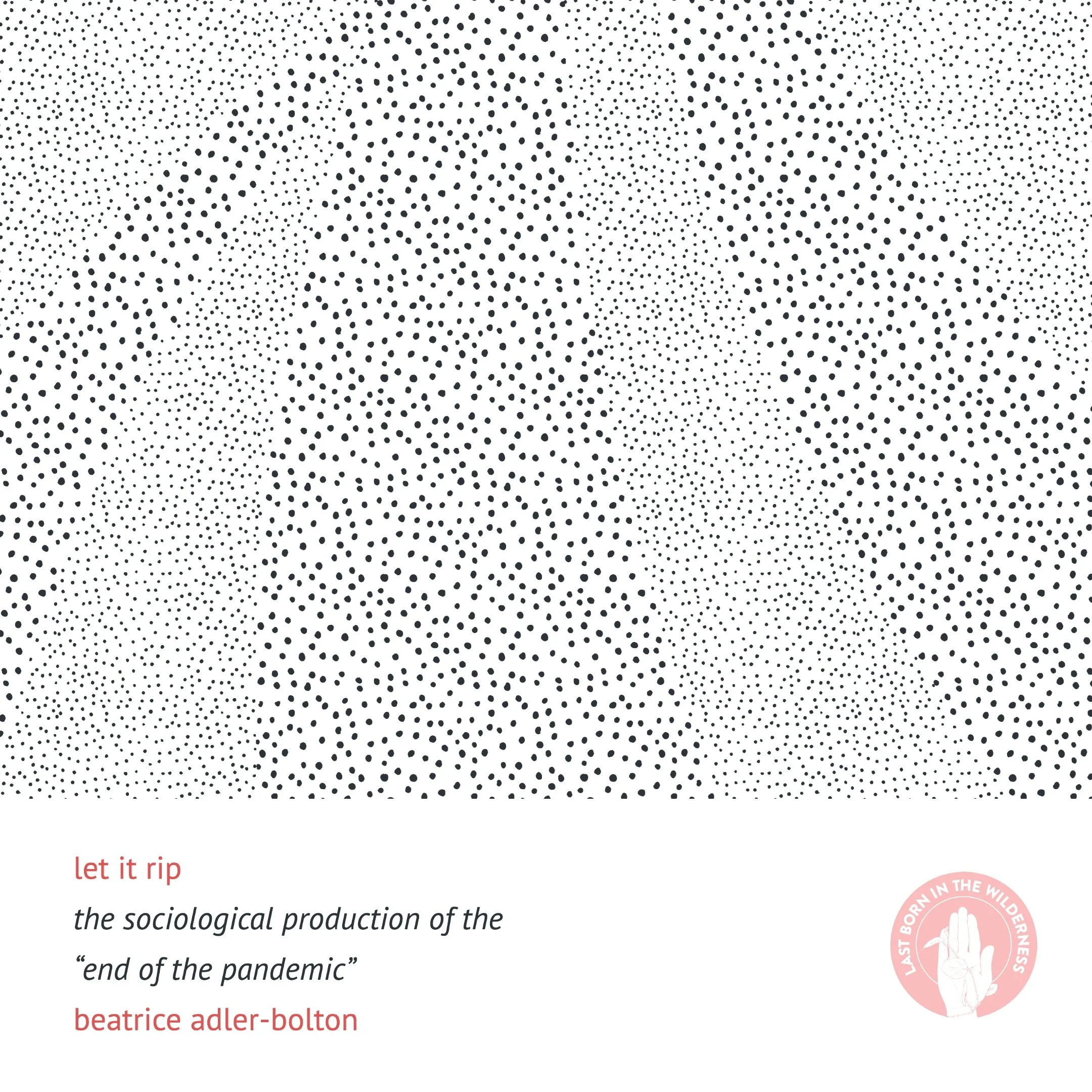Let It Rip: The Sociological Production Of The "End Of The Pandemic" / Beatrice Adler-Bolton
Beatrice Adler-Bolton, disability justice advocate and co-host of the Death Panel podcast, joins me to discuss the sociological production of the "end of the pandemic," and what that means for the "surplus" populations made most vulnerable by the economic demands of capital. She is the author of the upcoming book Health Communism: A Surplus Manifesto, co-authored with Artie Vierkant, which "argues for a new global left politics aimed at severing the ties between capital and health."
As the hosts of the Death Panel podcast have documented, discussed, and warned, the declarations made by the political and economic elites that we have entered into a "post-Covid" reality — where any and all public health measures meant to mitigate the spread of the virus are effectively lifted, and deemed unnecessary moving forward — is but a sociological construct, not based in epidemiological reality and sound public health policy. We have entered into the "let it rip" phase of the pandemic, it seems. What does this mean for the immunocompromised/disabled and other vulnerable populations, as practically all efforts and measures (however weak) to mitigate the spread of this virus come to an end?
As Beatrice, along with Artie Vierkant, write in The New Inquiry:
In early February, Anthony Fauci told the Financial Times that the U.S. was exiting “the full blown pandemic phase” of covid. As Democratic party Governors dropped some of the last remaining state mask mandates in unison in recent weeks, Bloomberg ran an article titled “Mask Mandates Didn’t Make Much of a Difference Anyway.” In The Atlantic, Yascha Mounk asked, “How much longer will the restrictions on everyday life drag on? What purpose do they still serve?”
Unfortunately, these shared sentiments are just that—sentiments, based in emotion or political calculation, bearing little relation to reality. More than 60,000 people died of covid in January alone; as of this writing, the U.S. has recorded more than 2,000 daily covid deaths for each of the last 30 days. Daily covid deaths have been above 1,000 for over 180 days (roughly half of an entire year).
In this context, what could possibly justify the impending declaration of the end of the pandemic? We have long warned that the end of the crisis would come as a sociological construction rather than as a meaningful end to covid’s ongoing burden on public health. In recent weeks, this process of normalizing the virus and the death, debility, and disability carried with it have become so pervasive that it feels as if at any moment the federal government will once again move to declare “independence from the virus.” But even without explicit state endorsement, the message is inescapable: in the minds of those entitled to speak, society is ready to move on, without many of us.
We do not have to accept this. Yet the pandemic’s socially constructed “ending” has been a long, ongoing process. Years of optimistic predictions, emphasis on personal responsibility, and reductive assumptions about individual risk have calcified into a set of positions now held by many of the most prominent voices on covid. But the talking points hawked by “respectable” pundits are largely indistinguishable from the worst views held by covid deniers, minimizers, and cranks. Their arguments rely on acceptance: first, on acceptance of their rosy worldview, and second, on accepting that the world has simply changed, and along with this change many more of us have become disposable.
Bio:
Beatrice Adler-Bolton is a blind/low vision and chronically ill artist, writer, and disability justice advocate. Beatrice studies radical patient groups and the capitalist political economy of health as an independent researcher and is earning a master's in Disability Studies at CUNY. She is the co-host of the Death Panel podcast with Artie Vierkant and Phil Rocco. Beatrice’s first book, called Health Communism: A surplus manifesto, co-authored with Artie Vierkant, will be published by Verso Books in the US and UK in October 2022. Health Communism argues for a new global left politics aimed at severing the ties between capital and health.
Episode Notes:
Subscribe and support the Death Panel podcast at the website and Patreon
Learn more about Beatrice’s work at her website and subscribe to her Substack
Pre-order Health Communism: A Surplus Manifesto
Article quoted is “The Beyblade Strategy” or: How We Learned to Stop Worrying and Love Focused Protection published at The New Inquiry:
Music produced by Epik The Dawn




